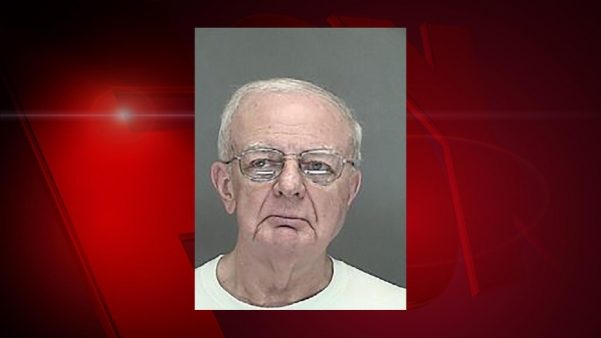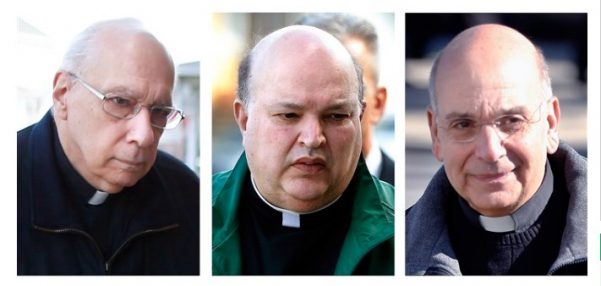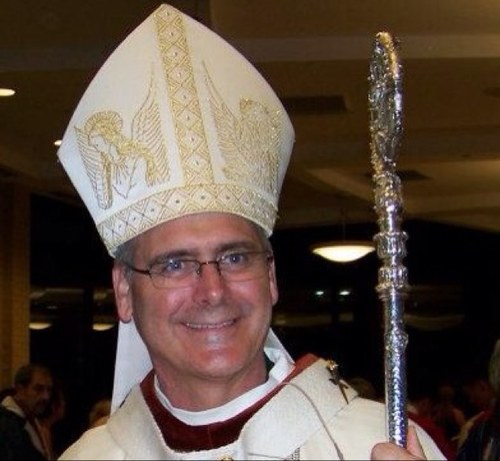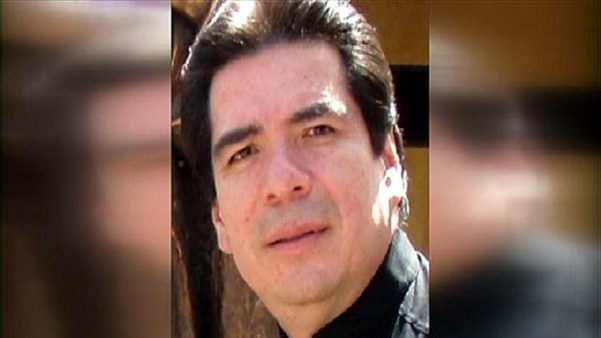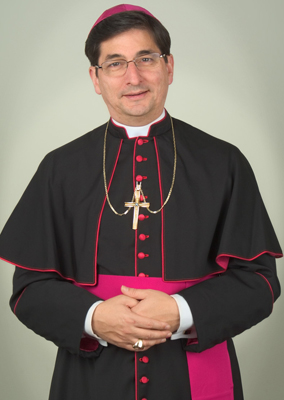By

JACKSON, MI — James Rapp’s Friday, April 29 sentencing wasn’t just about how long the former high school priest and coach would spend in prison.
It was about giving the 75-year-old former Jackson Lumen Christi High School priest’s victims a chance to tell their stories and confront the man they once viewed as an authoritative, respected figure.
Six of James Rapp’s victims provided gripping, detailed testimonials of how the former priest and coach abused them and affected their lives. Some remained anonymous, but others made the choice to make themselves known in court.
Rapp, who is currently serving a 40-year prison term in Oklahoma where he pleaded no contest to lewd molestation, was sentenced to up to 40 more years in prison by Jackson County Circuit Judge Susan Beebe.

He pleaded no contest to three counts of first-degree criminal sexual conduct and three counts of second-degree criminal sexual conduct in February. As part of a plea agreement, 13 charges of criminal sexual conduct were dismissed.
Photos of victims were placed on a table in front of Beebe and in plain sight of Rapp, his attorney Alfred Brandt and Assistant Attorney General Angela Povilaitis, who prosecuted the case.
The case was prosecuted by the Attorney General Cold Case Sexual Assault Project, with Povilaitis sitting.
“These victims were robbed of their childhood and that can never be undone,” Attorney General Bill Schuette said in a press release.
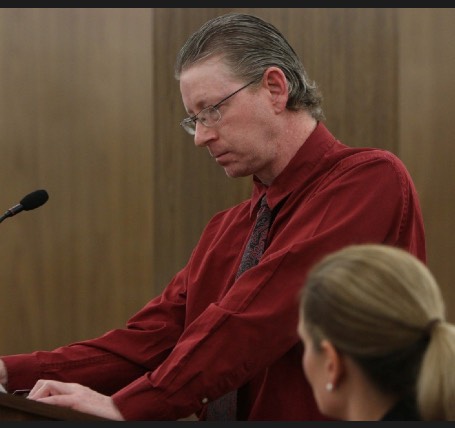
Each time one of the six men approached the stand, their eyes locked with versions of their younger selves.
Some victim statements were short, some long, some were prepared while others came off the cuff.
“Looking at that picture in front of me from 1984, and I wonder who I could have been,” Andrew Russell said, without a prepared statement. “His crime and position was a murder on my soul. He’s a monster and his path of destruction extends far further than it ever should have.”
Russell went on to say that he never thought getting kicked out of Lumen Christi would be the “best thing that ever happened to me.” Rapp served as a priest, teacher, maintenance supervisor and coach during his time at Lumen Christi from 1980-86.
Russell claims he was dismissed from the school the year after he presented the allegations to Rev. Joseph Coyle, Lumen Christi High School’s first principal. He claims he didn’t get a formal hearing in front of a committee when he was dismissed, just a visit to Coyle’s office.
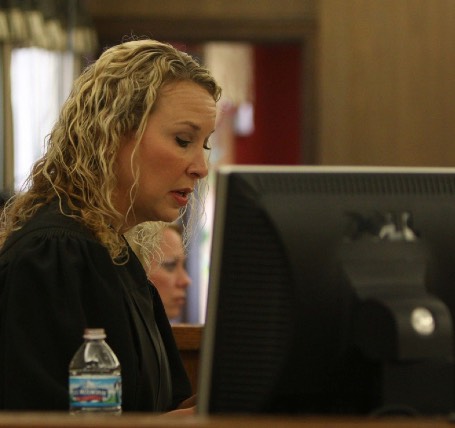
Another victim, John C. Wood, came forward with additional allegations against Lumen Christi administrators’ alleged transgressions. Wood cited a school wrestling trip to Detroit where the team stayed in a diocese-owned dormitory.
Wood was paired to share a room with Rapp, and said the wrestling coach “said the Lord’s Prayer on his knees, got in bed with me and had his way.”
Some time after the event had passed, Wood told his parents and the allegations made their way to Coyle. Wood said Coyle made him tell him what happened under confession rather than in a formal hearing or in his office.
“‘Some sins are so awful, we cannot talk about them,'” he said Coyle told him in Latin. “I was told I would go to hell if I ever talked about what I said in confessional.
“Well, if I’m going to hell for being here today, I’ll see Coyle there and we can talk about it some more.”
Wood claimed that Rapp was gone three days later, with the story that he was sent to help another parish. He said his family was told this was an isolated incident and Rapp would never be allowed around children again.
Rapp’s investigation started in 2013 after two men came forward to the Jackson County Sheriff’s Office. He was ordained in 1959, went on to work in Philadelphia from 1959-61; Salt Lake City from 1968-73 and Lockport, N.Y. from 1979-80 before coming to Lumen Christi. After that, he went to Naperville, Ill. from 1987-90; and Duncan, Okla. from 1990-98.
Each of the victims met Thursday night, April 28, in what Russell described as “a hell of a club to belong to.” While each victim’s story and tone differed, they all thanked Povilaitis and Jackson County Sheriff Detective Sergeant Tim Schlundt for their handling of the investigation.
Victim A, a man who chose to remain anonymous, compared Rapp to a reptilian predator and said the only equally tragic aspect is in the way the Catholic Church handled these crimes.
“There was collusion at Lumen Christi. It was my teachers against me. I felt like I could be hunted on any given day in my school, plucked from any given class,” he said during Friday’s proceedings. “His network of colleagues allowed him to facilitate his activities; they watched him pull boys out of class unquestioned.
“Other priests, even those who have passed away but are officially honored at Lumen Christi with charitable societies bearing their names, all knew about the raping of Lumen Christi boys. Their cover-up will be exposed, soon enough.”
Victim A went on to say that his “true losses are incalculable,” and when it comes to intensive therapy to combat his PTSD and other struggles, the Catholic Diocese has not offered a “single penny” of support.
He wasn’t the only victim to shed light on medical issues as Victim J, another man who chose not to reveal his name, stepped forward to admit he attempted suicide in the 1980s and had issues with substance abuse.
“Sober for 13-years in about a month,” he said, as Beebe congratulated him. “I’m almost 50 years old, but part of me is stuck being a 15-year-old boy trying to figure out where my life went.”
Complete Article HERE!

